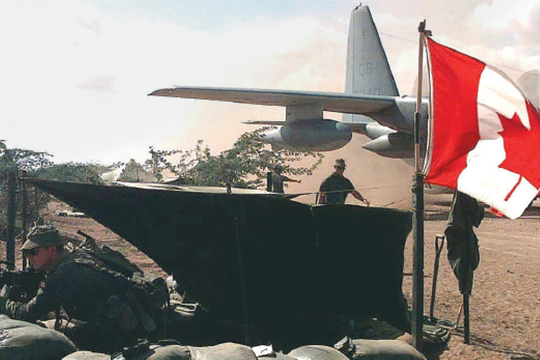
Veterans have experienced longstanding difficulties in accessing support over several successive governments — specifically getting the support they need to have an acceptable quality of life after service. This election, Federal Retirees is focused on three challenges that must be met by the next government to properly support veterans.
First, future governments should work to simplify and clarify programs and access to them. Program complexity can be a barrier to veterans and their families receiving the support and opportunities they need to thrive during their life after service.
For instance, transition to civilian life is a big change that can be especially challenging for those who are dealing with illness, injury, or trauma. Transferring to the civilian medical system is often marked by difficulty finding family doctors, long waits, and incomplete or missing medical records. This can mean that ill or injured veterans are unable to access financial, health, and other benefits and services from Veterans Affairs Canada.
Military service and its realities, including moves, have a direct impact on families, too. It’s important that those who are providing care and support to ill and injured veterans also have access to tools and supports. Future governments should build on the good work that’s been started by the new Canadian Armed Forces Transition Group working together with Veterans Affairs Canada. This group is working to make transition seamless, from continuity of medical care and records transfer, to co-ordinated programs and a clear application process, as well as support to navigate every step.
Secondly, the next government must ensure effective communication and support for veterans to rebuild trust. Rebuilding that trust is critical. Whether you are a veteran forced to take your own government to court for earned benefits or healing from military sexual trauma, broken trust in the chain of command and in our government is felt by some of today’s veterans. Numerous changes to the minister for Veterans Affairs in recent years, lack of well developed and communicated policy changes, and payment calculation errors compound this lack of confidence in the system veterans rely on.
Government cannot do it alone: horizontal communication among government departments and organizations that serve veterans and families is essential to improving access to information and resources. National service providers, non-profit, and community-based organizations are at the ready.
Finally, military and veteran women face additional challenges. Currently, women comprise about 16-per-cent of the military and there is a goal to have 25-per-cent serving by 2025. Yet aspects of military and veterans systems are gender-blind with systemic biases and research gaps. Therefore, Federal Retirees is pushing for equitable care and benefits for all veterans. Military and veteran women face unique challenges that must be addressed, especially as the government has indicated it plans to increase the percentage of women in the military.
Veterans have served Canada and were willing to risk their lives to do so. Now it’s Canada’s turn to support veterans of the Canadian Armed Forces and the Royal Canadian Mounted Police, and ensure they and their families have the well-being, care, and benefits they deserve.

